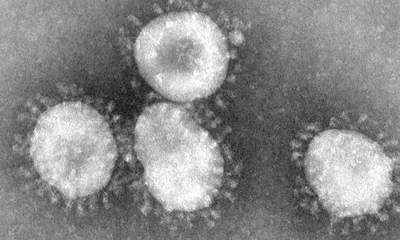'Sars-Like' Virus Contracted By UK Resident

A UK resident is in intensive care after contracting a potentially fatal Sars-like virus, health experts have confirmed.
The man, who is critically ill with breathing problems, has been isolated in a Manchester hospital while he receives treatment for "novel coronavirus". Half of the people known to have been infected with the bug so far have died.
The Health Protection Agency (HPA) believes he picked up the lung virus while travelling to the Middle East and Pakistan.
It says the risk to people in the UK is "very low".
Professor John Watson, the agency's head of respiratory diseases, said: "The HPA is providing advice to healthcare workers to ensure the patient is being treated appropriately and that staff who are looking after the patient are protected.
"Contacts of the case are also being followed up to check on their health."
The man is being treated in the intensive care unit at Wythenshawe Hospital.
University Hospital of South Manchester NHS Foundation Trust, which runs the hospital, said in a statement: "Our staff already follow strict guidelines on treating patients with unknown illnesses and have been wearing personal protective equipment at all times since their initial contact.
"Visitors are being limited and they too will follow strict safety guidelines."
The bug, which is similar to the Sars virus and causes severe breathing problems, has so far been confirmed in 10 people worldwide. Five have died.
One man was flown to London from Qatar last year for specialist treatment. Sky News understands he is still severely ill.
All the cases have been linked to the Arabian Peninsula and surrounding countries.
Professor Watson said: "No travel restrictions are in place, but people who develop severe respiratory symptoms, such as shortness of breath, within 10 days of returning from these countries should seek medical advice and mention which countries they have visited."
Coronaviruses can cause the common cold. But the new novel form of coronavirus remains a mystery.
Scientists are still not sure whether it is circulating widely in the Middle East, but usually causing only mild symptoms.

 Yahoo News
Yahoo News 